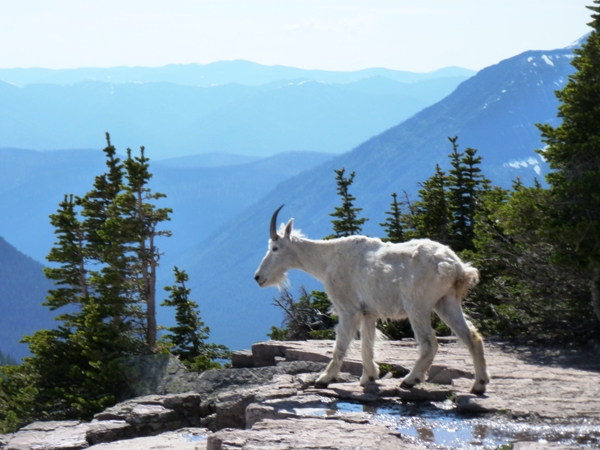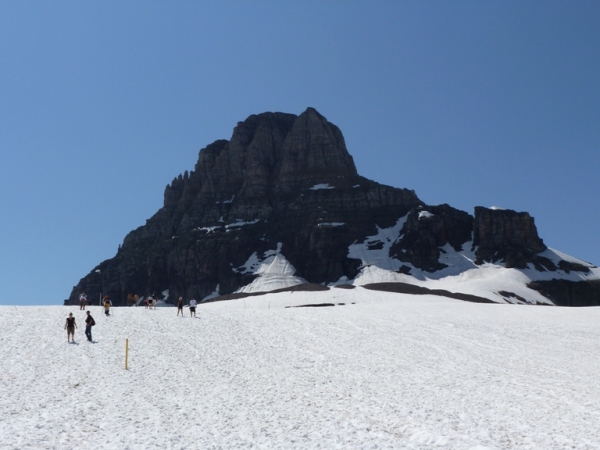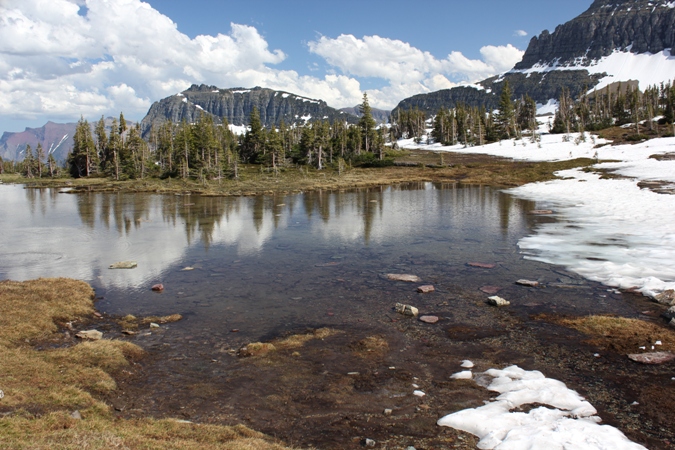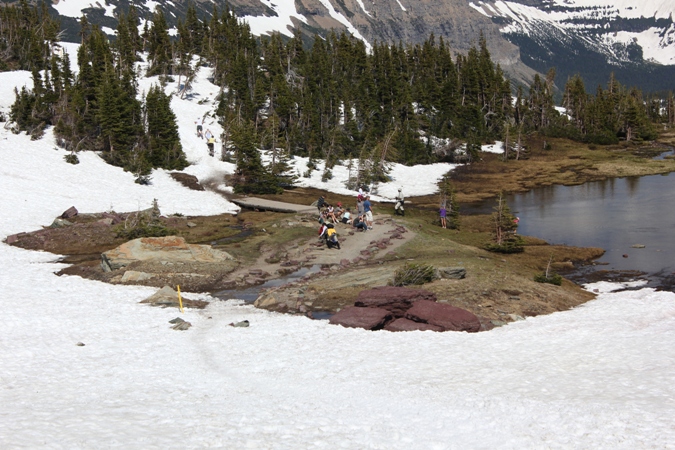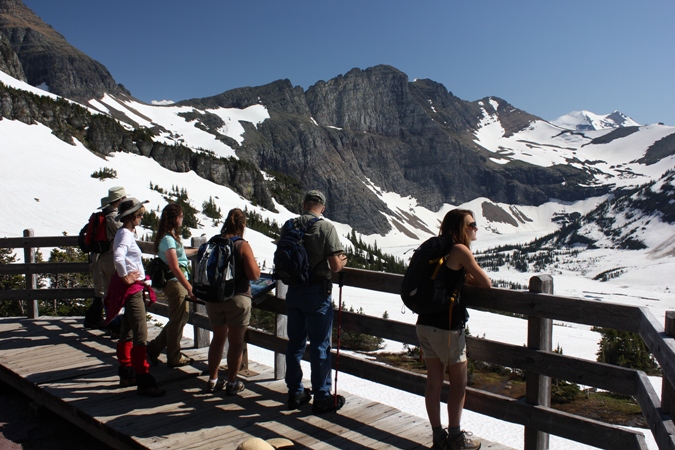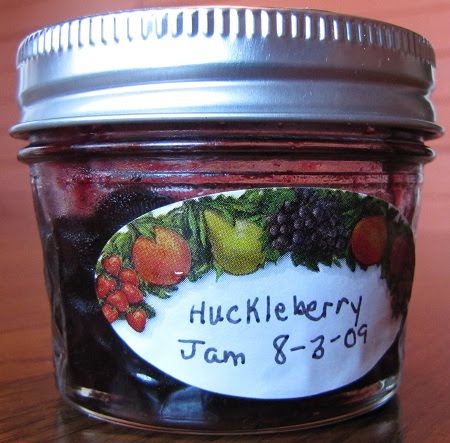I stood looking out the window as usual, sizing up the day. It was expected to be a hot one, but by no means as hot as what some folks have been living through. As I stood there, I glanced at my garden and decided that I should pick some ripe strawberries. I also reminded myself to ship my granddaughter’s birthday present. She will be 10 next week and I wanted to be sure that her present would arrive in good time.
Earlier, David and I had chatted about whether or not it would be polite to call the hikers we had seen on the Hidden Lake Trail – “quitters“. The hikers in question had successfully climbed up a steep hill covered in snow and maneuvered around a slippery slope (and then some) to get to a lake on the trail.
It’s a lovely spot where people generally congregate to enjoy the view and take pictures.
When we were there, I had overheard someone saying, “Lots of people are stopping here”.
From experience, I know that when someone says “stopping” on a trail, it generally means they will be turning around.
The comment disappointed me when I heard it, as I knew the overlook wasn’t much farther. The people that turned around would be missing something, I thought.
Not everyone turned around, though. A steady stream of people hiked to the overlook.
But the question here is whether or not it would be nice to call the hikers who did turn around, “quitters”. Let us consider a few things.
- Had they reached their physical limits?
- Had they started out with a bad attitude and had seen enough?
- Were their feet frozen because they had worn flip flops on a snow covered trail?
- Did they have snow blindness because they didn’t bring sunglasses?
I cannot answer these questions.
What complicates the “quitter” question is the fact that on another trail in Glacier, just a day after our visit, a 37 year old man died when he fell 280 feet down a snowfield. He was on the Grinnell Glacier Trail, a much longer and completely different trail than the one to the Hidden Lake Overlook. I can tell you firsthand that crossing its snowfields can be hazardous.
So although the man that lost his life doesn’t sound like a quitter, new and different questions arise.
- Should he have “stopped” sooner?
- How slippery was the trail?
- Had he gone off trail?
- Was he wearing hiking boots? Would it have mattered?
- I cannot answer these questions either.
I can only answer that to “stop” too soon is to miss the extraordinary. Only you can judge as to what is “too soon”.
Marlene
